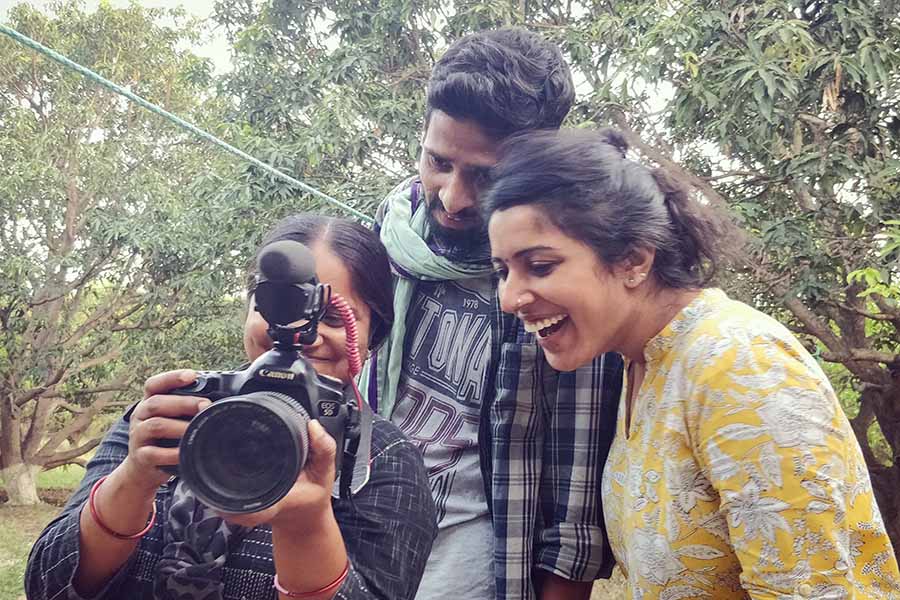
Completing and promoting a film under "normal" circumstances is difficult enough, but imagine the impossibility of pulling this off in the midst of a pandemic! That’s exactly what our IDA Documentary Screening Series grantees managed to do. This year, IDA supported 11 filmmakers from historically underrepresented communities through its in-kind grants, in an effort to help minimize the financial costs associated with pursuing a film awards campaign, and support a more equitable documentary culture. Here is a short conversation with some of our 2020-2021 grantees.
What was the most challenging or rewarding moment you experienced making your film?
Rintu Thomas, co-director/co-producer, Writing with Fire: During the production phase of Writing with Fire, we were shooting in a lot of spaces that were hostile and unwelcoming—illegal mines, police stations, etc. We were intentionally a very lean crew of three and our focus was to call the least attention to ourselves, while capturing a moment as it unfolded. This navigation had to be done quite skillfully and regularly. While being in these dangerous situations, you realize that shooting a film is choreography of the mind and body—the art of knowing when to play your cards and when to fold and walk away.
Chris McKim, director, Wojnarowicz: F**k You F*ggot F**ker: The most rewarding part of the experience was the amount of time I was able to spend with David Wojnarowicz, nearly 30 years after his death, through the audio journals he left behind. As the audio files came in from his archive, I loaded them up in my iPhone, hit shuffle and listened to him share his deepest thoughts and experiences long before we started editing. It became a much more intimate and personal experience than I expected when starting the project.
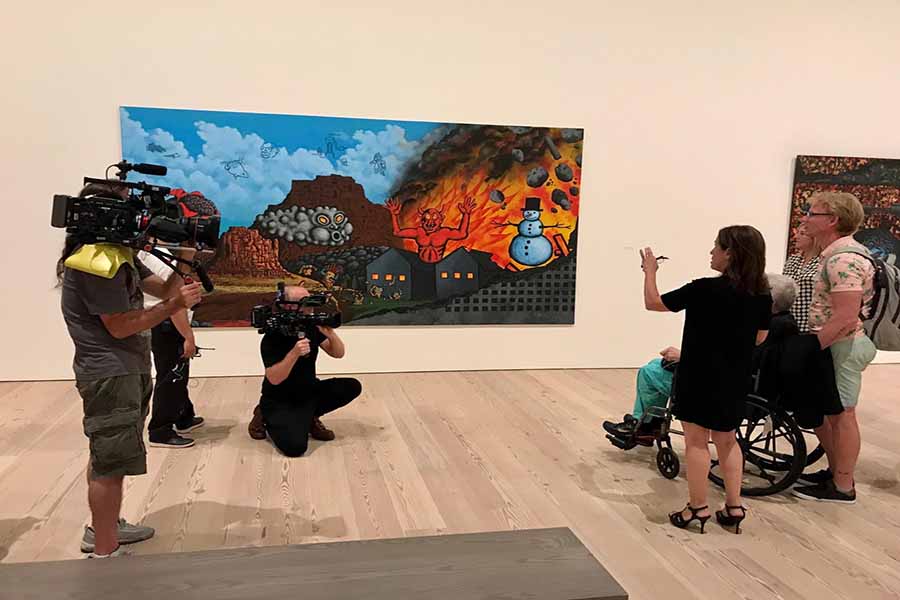
Gulistan Mirzaei, co-director/co-producer, Three Songs for Benazir: …what I did not anticipate was the difficulty of making a film about my good friend, watching the ways his life unfolded. We journeyed with him and saw how his story of displacement both mirrored and departed from my own. I knew what it was like to be displaced, to become a refugee, to lose my family to the war in Afghanistan, but I also had the privilege of being able to pursue my dreams, including the wild dream of becoming a filmmaker. My hope is for Shaista and Benazir [the film’s protagonists] to reach their hopes and dreams as well.
Suzanne Kai, director, Like a Rolling Stone: The Life and Times of Ben Fong-Torres: I intentionally blocked out the world and didn't read or see any films that featured Ben or Rolling Stone. Then, after my initial research, I started to look at what was already out in the public. To my surprise, and even though Ben has written some great books, a lot of the information I filmed with many of the "insiders" was all new and most of that was not known publicly. This really helped to give our film a very fresh and new feeling that brings the audience into a sense of discovering new information about this man not too many people knew—a man who is so important to that groundbreaking time of journalism, rock and roll, and change.
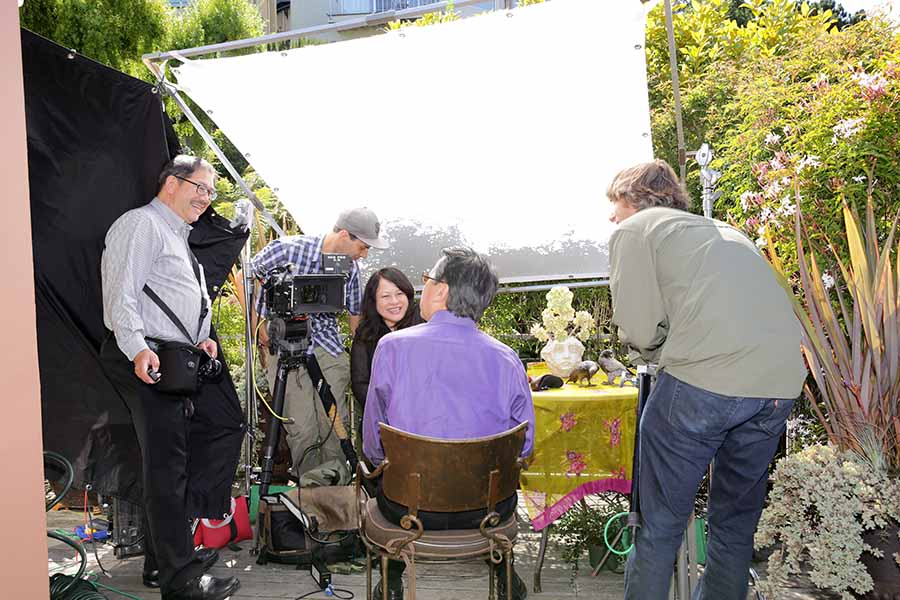
What’s an unexpected lesson making this film taught you?
Sushmit Ghosh, co-director/co-producer, Writing with Fire: Most men in positions of authority and power are stumped when they see a Dalit woman journalist walk up to them with a camera and ask intelligent questions. They are compelled to confront the women’s intellect and engage with them. From behind the lens of my camera, I had the opportunity to experience this shifting dynamic of power.
Mobolaji Olambiwonnu, director, Ferguson Rises: I learned many things as a filmmaker that I would not have expected, but I think the big thing I took away is the humanity of the people I met on all sides of the political spectrum. When we sat down and spoke to each other with respect and compassion, despite our different views, it gave me some hope that there is the possibility of this country moving forward in the area of race/class. I realized that many of us share the same commitments for a better community and a better world for our children, and that we need to realize that those we don't agree with want the same thing as well.
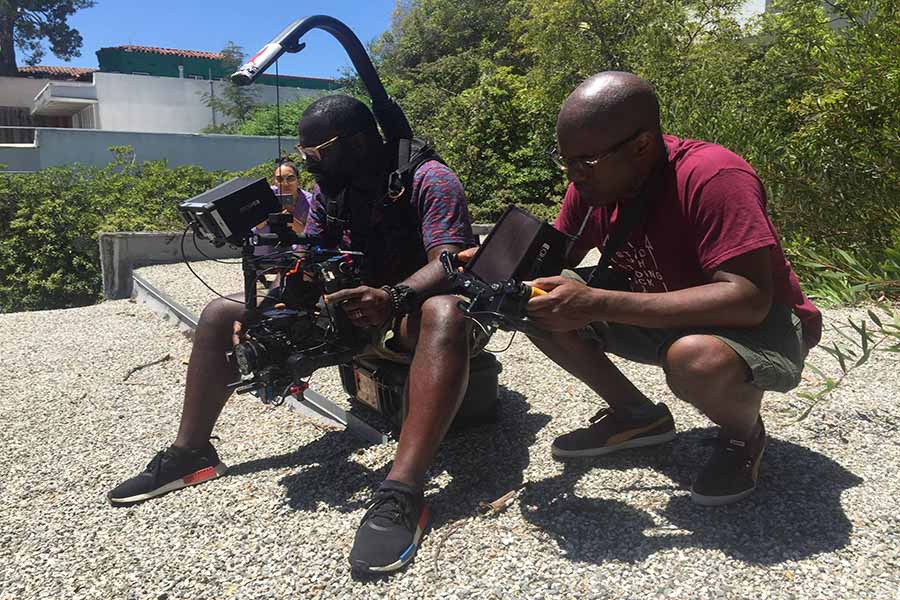
What do you hope the impact of your film will be as it is experienced by more audiences?
Nicholas Bruckman, director, Not Going Quietly: On the ground level, I hope that every audience member who watches Not Going Quietly leaves feeling uplifted and energized, and takes Ady’s message to heart—that hope is not a state of mind; hope is a state of action, and a hammer that we use to build a better world. It’s a message that transcends politics. On a global level, I want the film to become an organizing tool for those who want to tell their stories and hold politicians’ feet to the fire—the ones that we elect—about their promises, and use people power to fight the corporate interests and lobbying efforts that we know are on the other side of this healthcare fight.
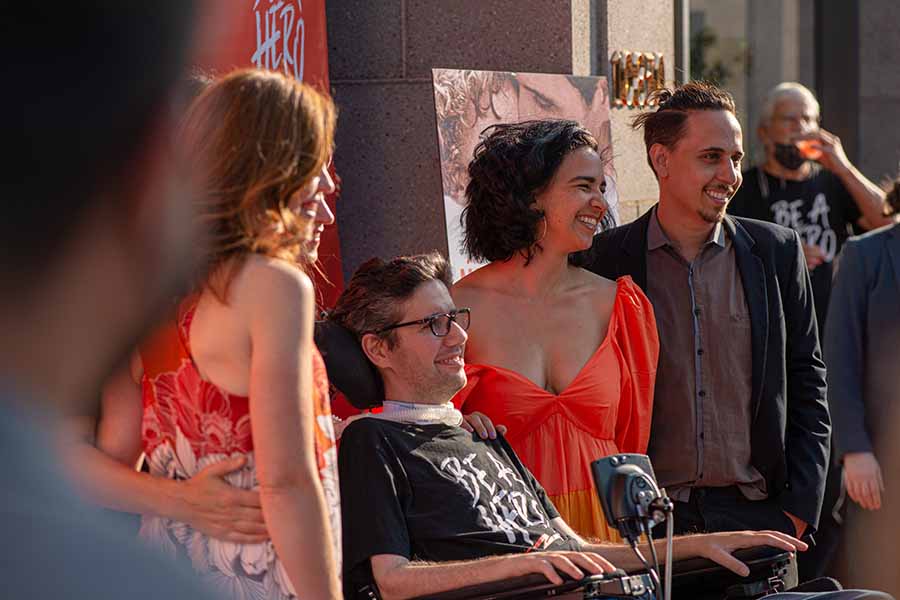
Debbie Lum, director, Try Harder!: High school has changed and today students at high-achieving schools have almost three times the amount of stress than that of the average teen. The so-called "smart kids" have been named an "at-risk" group for anxiety, depression and the mental health issues that often become long-term health issues years later...I hope after watching Try Harder!, audiences will see that our students are so much more than their test score or a high GPA or the three sheets of paper they turn in on their college applications.
Nefise Lorentzen, director, Seyran Ateş: Sex, Revolution and Islam: Seyran and I have been spending our spare time meeting our audiences on various digital platforms. I hope the film will make a change and that women will start to demand more space and more respect within the Muslim communities. The film will spread Seyran’s peace message: gender equality and diversity! I also hope in the future it helps Seyran receive a Nobel Peace Prize nomination.
GM, Three Songs for Benazir: [The film] takes place in the years and months before Afghanistan fell back into the hands of the Taliban, but it is a film that is really about matters of the heart. My greatest hope is that, in telling a love story, the film can move hearts to re-consider the way the media sees and portrays Afghanistan and the Muslim world.
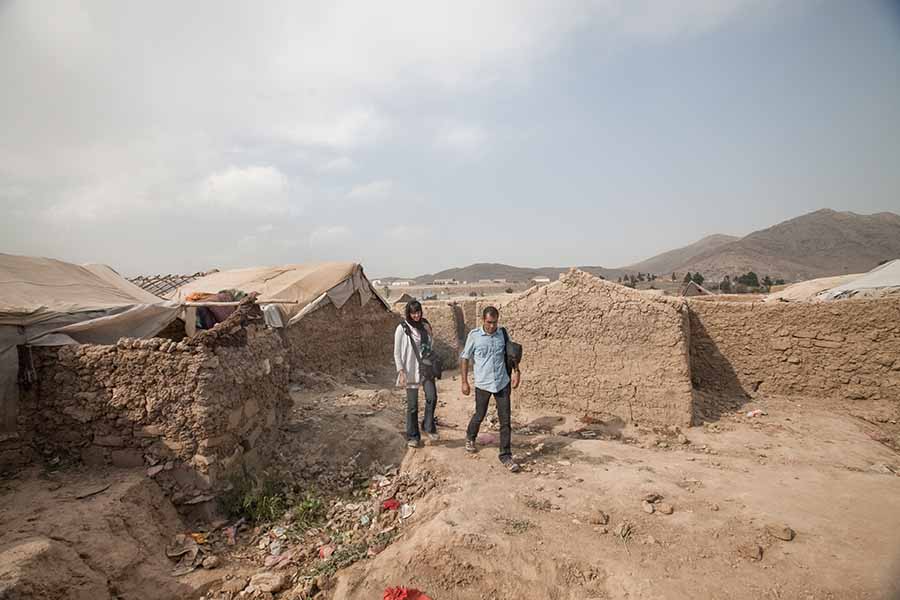
MO, Ferguson Rises: I hope that audiences follow Michael Brown Sr.'s journey and that of the town, and find a pathway to find purpose in their pain. That through the example of resilience demonstrated in the film, they see how they can, through community and giving back, turn their pain into something constructive
Michèle Stephenson, director, Elena: I hope that the audience realizes that [filmmaking] is about bearing witness and acknowledging our lived experiences for later generations. Elena is a story that doesn’t dabble in trauma or poverty porn, as so many documentaries lean into. Her story is part of a larger Black Atlantic narrative that speaks to the complexity of our lived experiences and the dignity with which our communities face systemic racial oppression while also finding ways to experience joy and love.
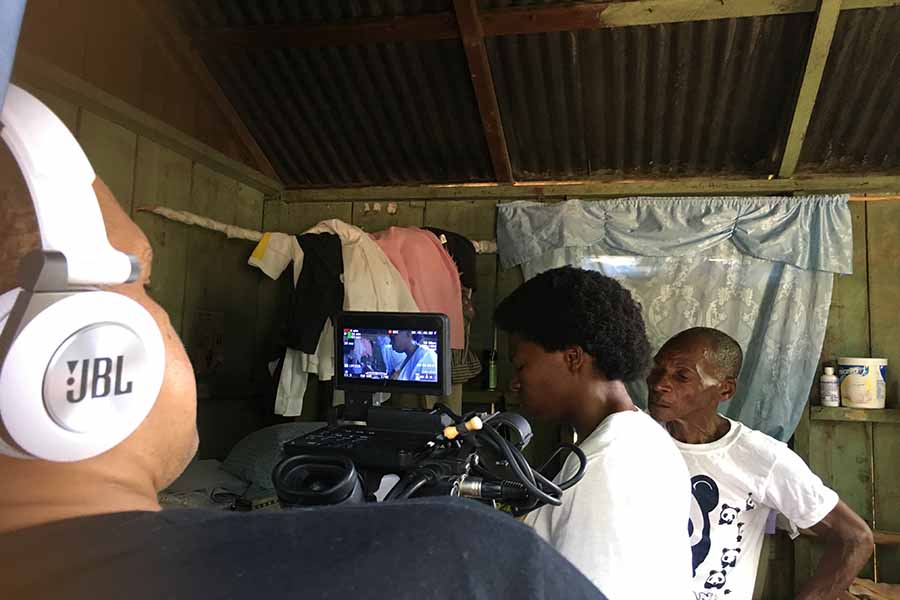
SK, Like a Rolling Stone: The Life and Times of Ben Fong-Torres: ...we have had young journalists/students, including from the Asian American community, come up to us and tell us how they are inspired by the film and Ben. To have that impact with a film is truly a dream come true.
CM, Wojnarowicz: F**k You F*ggot F**ker: ...I hope that people are inspired by his story and the power of his example. So many of the issues he confronted throughout the ‘80s, before and during the AIDS crisis, such as America’s "One-Tribe Nation" mentality, health care, homophobia, racial inequality, corruption and the imbalance of power remain problems today.
What specific hurdles did the Screening Series In-Kind Grant help you get past?
RT, Writing with Fire: Being an independent international documentary from the Global South, the costs involved in situating the film in the awards season are extremely prohibitive for us. The Screening Series is a highly curated space and to have such a meaningful spotlight on our film expands its opportunities within the industry. This support is significant in creating a level playing field to ensure our stories are amplified.
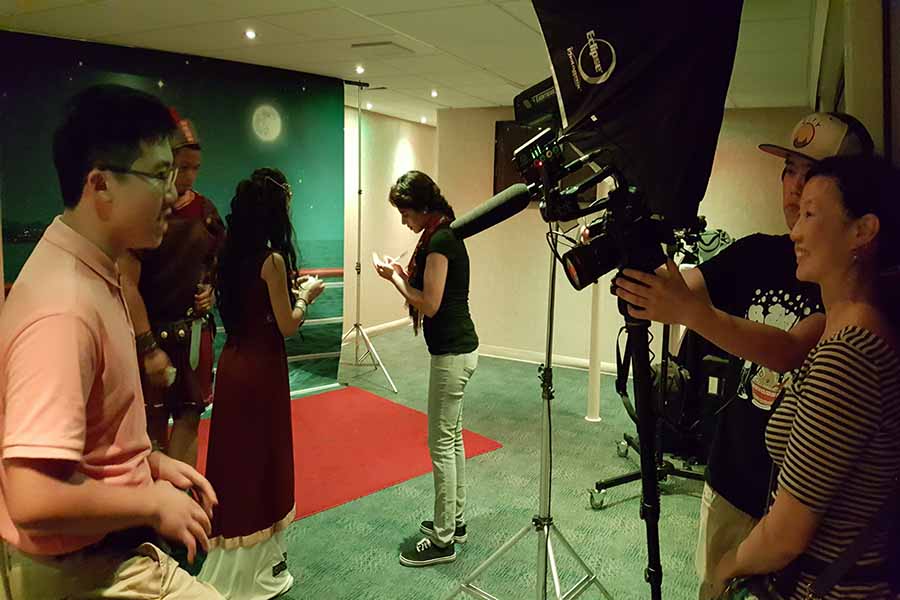
DL, Try Harder!: Ironically, akin to the students in our film trying hard to reach their near-impossible higher ed goals, we encountered one challenge after the next in making, funding, editing, then distributing Try Harder!...As an indie doc maker, there are so many difficult steps along the grueling process of creating a film and we often ask ourselves if we have the "stomach" for it, so this nourishing grant is a huge boost on many levels.
NL, Seyran Ateş: Sex, Revolution and Islam: …it contributes a lot to our Oscar campaign. Screening directly to the Academy members, publishing advertisements and information about our film on IDA’s network and spreading our pre-recording Q&A to all the documentary lovers all around the world. IDA has given its network to us. Such generosity!
MS, Elena: I think the biggest hurdle is support for expanding exposure and access. The grant allows our team to amplify Elena’s story to larger circles and networks of people unfamiliar with our Haitian diaspora and its descendants, and the specific nature of state-sanctioned, anti-Black discrimination in the Dominican Republic. It also provides an opportunity to share a different approach to storytelling where short films sometimes get short-changed in our field.
Jessica Rodriguez is a Digital Communications Specialist at IDA.